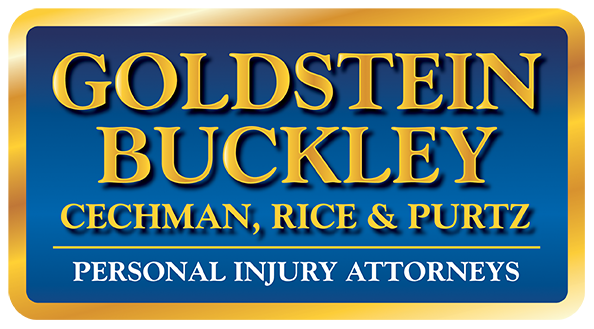Case Valuation
What is my case worth?
Many factors are taken into consideration when a personal injury claim is evaluated for settlement purposes. Cases have value based on the following elements, assuming the liability (i.e. who was at fault) is proven.
Under the law, plaintiffs in personal injury cases are entitled to both economic and non-economic damages. These include:
- Past Medical Bills
- Future Medical Bills
- Past Lost Wages
- Loss of Future Earning Capacity
- Pain and Suffering
- Inconvenience
- Loss of Capacity to Enjoy Life
- Mental Anguish
- Disability
- Disfigurement
There is no tried and proven formula to determine exactly how much a case is worth and it may depend on several factors including: how the evidence is received and evaluated by a jury; whether or not there are any inconsistencies in testimony; the availability of medical records; pre-existing conditions and other factors which would allow the insurance company’s lawyer to attack the credibility of the injured party. However, when negotiating settlements and trying cases before juries in the state of Florida, we are generally able to establish a “range of value” of cases after the attorneys working the case have been able to review all of the medical records and bills and see how the client has responded to medical care and treatment. Because every case is different, even with all of this information, it is very difficult for anyone to establish an exact figure as to the net worth of a case. But, typically, a range of value can be determined.
How do I get compensated for injuries?
If the other driver was at fault, you may be entitled to compensation for your injuries as well as any pain and suffering. This can include a wide variety of expenses related to the accident injuries such as lost wages, etc. While you may ultimately decide not to sue for damages, it is wise to get input from an attorney to protect your rights.
Can’t I just estimate the cost of my own injuries right away?
Because the full extent of many injuries may not be known for quite some time after the accident, an attorney can help you evaluate your potential losses. It’s devastating to sign away your rights only to later discover that your injuries and losses were worse than you originally thought.
Should I accept an insurance company’s settlement offer?
Before accepting a settlement, it is always in your best interest to consult an attorney. Adjusters work for the insurance company, not for you. Their job is to settle the matter for the lowest possible cost to the company. An attorney will work for you and ensure that a settlement results in full compensation for your injuries. You don’t want to sign away your rights only to later discover that your injuries and losses were worse than you originally thought.
Fees and Costs
What are the attorney’s fees and costs for a personal injury case?
As set forth in our Authority to Represent, our fees in a personal injury case are contingent upon the financial recovery in your case. The fees are in accordance with guidelines set by the Florida Supreme Court. If there is no recovery, there is no fee. Therefore, we share a common objective of obtaining a favorable result in your case. Costs are incurred in the pursuit of your case. We do not ask you for a cost deposit up front and we do not bill you for the costs as they are incurred. The costs are reimbursed to us at the end of the case. The most common costs are for investigation and medical records. Our financial arrangement will be clearly and fully explained at the Initial Interview; and several months after your file is opened, a follow-up explanatory letter will be sent to you.
Are the services of Goldstein, Buckley, Cechman, Rice & Purtz expensive?
Our firm utilizes the standard contingency fee contract established by the Florida Bar. Your initial consultation is free in personal injury and wrongful death matters. In Florida, attorneys who handle personal injury claims are paid on a contingency basis. This means that you don’t have to pay anything unless and until we obtain a recovery of your behalf. Our fees will be deducted from your settlement or award. If there is no recovery, personal injury attorneys don’t get paid.
Why must I pay “costs” in my case?
In Florida, a lawyer or law firm is not permitted to obtain a financial interest in the client’s case. To ensure this does not happen, Florida Bar rules governing the conduct of lawyers allows a law firm to advance the costs of a case or litigation, but the client must remain responsible to the law firm to reimburse the costs of the matter. In personal injury cases, our firm advances all costs associated with handling the case. We are then reimbursed when a recovery is made on behalf of the client.
Depending on the type of case involved, costs can be minimal or can run into thousands of dollars if complex litigation is involved. In cases that are settled before a lawsuit is filed, the costs are much less.
Our firm is permitted to advance the costs necessary to properly prepare your case and protect your legal rights. In certain cases, we can recover these expended costs from the insurance company directly.
Filing Suit
Do I have to “file suit” or go to court?
Filing suit is the actual act of filing legal papers at the courthouse. This is done only with the client’s permission after all efforts have been made to resolve the case in pre-suit negotiations. If the insurance company for the party at fault agrees to pay what we believe your case is worth, and you wish to settle for that amount, then you don’t have to go to court.
If the insurance company refuses to pay the amount acceptable to you, then we have to proceed in court. Our accident lawyers make sure you’re fairly compensated for your injuries and losses. Over the last 15 years the insurance industry has become extremely aggressive in defending these cases and we find ourselves in litigation more and more.
When a lawsuit is filed, it does not necessarily mean that you will one day be walking up the courthouse steps with one of our lawyers. However, it does mean that it is a possibility. Many injury claims can be settled for their full value through negotiation, mediation or arbitration, without you having to go to court. However, some complex cases may require that you participate in legal proceedings.
Although most cases resolve before trial, there is a possibility that once a law suit is filed in your case, it can go to trial. Regardless of when in the legal process a case settles, we strive to keep the client informed of their options during the entire process. If the case needs to be tried, we are prepared to try it.
Can you predict from the beginning whether a case will settle or go to court?
We cannot predict whether a personal injury case will settle or wind up in front of a jury in a courtroom. Generally, most cases settle out of court because settling reduces risk and is cost-effective for all parties. Whether legal action is ultimately necessary to bring your case to its final disposition is something that is determined after all efforts to settle the case are exhausted. Although the majority of cases are settled, we prepare every case as if it were going to trial. That preparation assists in facilitating a settlement.
Odds and Ends
What is a “Letter of Protection”?
In many instances people with more serious injuries do not have insurance coverage or have exhausted their PIP benefits. When that is the situation some medical facilities and physicians are willing to take a “letter of protection.” This is a document that gives the patient the ability to keep treating without paying for the medical bills immediately or at the time of treatment. These letters of protection typically, if accepted by the facility or physician, allow the patient to keep treating and once a recovery is made, the doctor or health care facility is reimbursed. However, it is always made clear to the client that even with a letter of protection in their medical file, they are ultimately responsible for the medical bills in the event the case does not resolve as expected.
What is MMI?
When you are treating with a doctor, eventually we request a final narrative from the physician at the conclusion of your treatment. When we speak of conclusion of treatment, that means the point at which the treating physician has decided you are at MMI. This is an abbreviation for “Maximum Medical Improvement” and simply means that you are as good as you are going to get. That is not to say you are as good as you were before the accident, but that your condition is stabilized and you have a loss. It is at that point that some doctors assign, and insurance companies request, a permanent impairment rating. This is generally done pursuant to AMA guidelines.
In Florida, to be compensated for pain and suffering in an auto accident case, it is required that a treating doctor state that a permanent injury exists. Therefore, upon completion of the doctor’s recommended course of treatment, your attorney will specifically request a final report indicating a permanency rating from the doctor.
Premises Liability
What is premises liability?
Premises liability generally refers to accidents that occur due to the negligent maintenance, or unsafe conditions upon property owned by someone other than the injured victim. The State of Florida requires landowners to maintain their property in a manner that does not cause injury to those that, for various reasons, visit the property. This law pertains to both business owners and homeowners. It is crucial to a premises liability settlement to be able to show how long the defect or injury-inflicting element was there, how visible it was and how much notice the owner had of the dangerous condition before the accident.
Defects can include uneven or broken pavement, wet or slippery floors, or other dangerous conditions on premises.
What should I do if I’ve been injured in a slip & fall accident?
Most businesses and homeowners carry liability insurance to protect them in the event that someone is injured while on their property. The owner or possessor of a residence, land or place of business has the duty to exercise reasonable care for the protection of those individuals who are invited to come upon the premises, i.e., individuals visiting for business or pleasure. In such cases, the owner, company or person must inspect the premises to discover any dangerous conditions and warn the invitee of dangers upon said premises. Those injured by a negligent owner or possessor of a premise may recover damages for their injuries, including loss of income, medical expenses, pain and suffering, etc.
The Service of an Attorney
When is a personal injury attorney needed?
If you have been seriously injured or are unsure as to the outcome of your injury, you are better off hiring an attorney as soon as possible. You should always consult an experienced personal injury attorney before you give any statements or sign papers of any kind. A qualified personal injury attorney will ensure that you receive fair compensation for your injuries.
How soon should I call an attorney?
You should consult an attorney as soon as possible after being injured. In most cases there are time limits for filing claims after an injury occurs, and if this deadline passes, your claim could be dismissed. You should seek an attorney’s advice before admitting guilt or any responsibility for the accident and any resulting injuries, including your own. In addition, finding witnesses and gathering evidence to support your case becomes more difficult the longer you wait.
How do I choose an attorney?
The success of personal injury attorneys is based on several factors, including education, legal skill and experience. The attorney you retain should have a proven record of winning cases similar to yours and should be willing to thoroughly explain his or her recommendations based on the specific details of your case. Your attorney should also have extensive experience settling cases through negotiation and trying cases in court. Another very important factor is for you to feel comfortable with your attorney, and confident that your interests will be a top priority. The hiring of an attorney is an important decision and should not be based on advertising alone. You should ask the questions set forth above to ensure that the attorney you hire has the experience your case may require.
Wrongful Death
What is Wrongful Death?
Wrongful death occurs when a person’s death was caused by the negligence, willful and wrongful act, omission or default of another, such as careless driving or a deliberate murder. In addition to injuring the person who died, people who depended upon the deceased for financial or emotional support may be entitled to compensation for the wrongful death. The State of Florida has enacted a statute permitting a lawsuit to be brought by the relatives of a person who died as a result of a wrongful act.
Under what circumstances can a wrongful death occur?
Wrongful Death law provides financial compensation to the family of a person whose death was caused by the negligent, willful or wrongful act of another. Wrongful death cases are filed as a result of a variety of situations, including:
- Medical malpractice resulting in decedent’s death
- Automobile, bus, train, airplane or other common carrier fatality accident
- Death during a supervised activity (sports tournament, field trip, etc.)
Personal Injury
Mistakes After a Personal Injury Claim
Pre-Existing Injury
Taking the First Personal Injury Settlement Offer
Personal Injury Medical Bills
Personal Injury Case Timeline
Selecting a Personal Injury Attorney
Personal Injury Attorney Fees
Personal Injury Insurance Investigation
Personal Injury Available Damages
Role of Expert Witnesses in a Personal Injury Claim
Personal Injury Case Going to Trial
Nursing Home
Selecting a Nursing Home Abuse Attorney
Taking the First Nursing Home Abuse Settlement Offer
Nursing Home Abuse Attorney Fees
Mistakes After a Nursing Home Abuse Claim
Nursing Home Abuse Case Timeline
Nursing Home Abuse Case Going to Trial
Reporting Nursing Home Abuse
Nursing Home Abuse Case Value
Pedestrian Accident
Selecting a Pedestrian Accident Attorney
Taking the First Pedestrian Accident Settlement Offer
Pedestrian Accident Attorney Fees
Mistakes After a Pedestrian Accident Claim
Pedestrian Accident Case Value
Pedestrian Accident Case Timeline
Pedestrian Accident Case Going to Trial
Partial Fault Pedestrian Accident
Differences Between Pedestrian Accident and Car Accident Cases
Pedestrian Accident Insurance Investigation
Boat Accident
Selecting a Boat Accident Attorney
Mistakes After a Boat Accident Claim
Taking the First Boat Accident Settlement Offer
Boat Accident Case Value
Boat Accident Case Timeline
Boat Accident Available Damages
Boat Accident Insurance Investigation
Boat Accident Attorney Fees
Boat Accident Case Going to Trial



